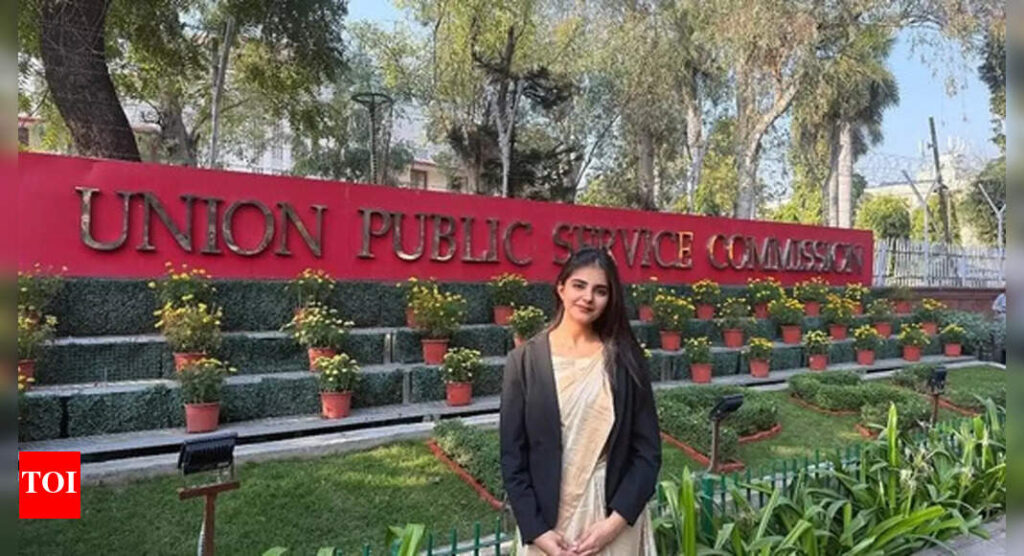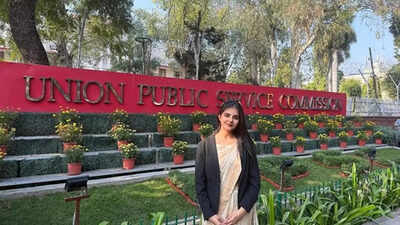A young woman’s celebration of cracking one of India’s toughest competitive exams has unexpectedly turned into a flashpoint for online outrage, policy scrutiny, and heated debates on reservation. Poorva Choudhary, who secured All India Rank 533 in the UPSC Civil Services Examination 2024, now finds herself at the centre of an OBC (Non-Creamy Layer) quota controversy, with critics questioning whether her family background truly qualifies her for the benefits she received.
The storm began after a celebratory Instagram post shared by Poorva’s sister Navya went viral. The post, captioned “Cleared UPSC while serving this face card,” was initially met with praise and admiration. However, attention soon turned to the OBC tag appearing next to Poorva’s name in the official results, sparking allegations that she had unfairly availed herself of the reservation quota despite allegedly living a lavish lifestyle.
The accusations and the lifestyle optics
Poorva Choudhary, daughter of a Rajasthan Administrative Services (RAS) officer, was accused by several social media users of misusing the OBC-NCL certificate. A user on X alleged, “Her father’s an ADM… Still, she used OBC-NCL certificate to qualify for exam.” The allegations gained traction due to perceived inconsistencies between her apparent lifestyle and the criteria for OBC-NCL benefits. Several users referenced her now-deactivated Instagram account, pointing to posts that featured luxury items, international travel, and designer accessories.
In a post dated shortly after the results, user @Laachar_Man wrote on X, “Poorva Chaudhary’s father is an ADM, owns property worth crores, she spends lakhs every week — yet she gets OBC-NCL. My father earns Rs 40,000 a month, I’m from General category — no reservation, no support. We work hard, someone else takes the seat. Is this what justice looks like?”
Father breaks silence and explains eligibility
In response to the growing backlash, Poorva’s father spoke to a media house, firmly denying the allegations of quota misuse. He clarified that although he is currently an ADM, he was promoted to the RAS cadre at the age of 44. As per government norms, children of Group A officers are not entitled to OBC-NCL status only if the parent entered the service before the age of 40. “In the case of direct RAS recruitment before the age of 40, the OBC NCL benefit does not apply. That’s not my case,” he stated.
He also noted that the family’s income remains within the prescribed limit for OBC-NCL eligibility—Rs 8 lakh annually, excluding agricultural income. He urged the public to “understand the rules before jumping to conclusions,” as quoted by a media house.
A digital trial by perception
Poorva’s disappearance from social media platforms, including her deactivated Instagram account, has further fuelled speculation. While no official authority has found her in violation of any eligibility rules, the digital narrative has painted a different picture. The controversy has sparked renewed debate about whether “lifestyle indicators” should influence one’s qualification for reserved categories—a suggestion many policy experts reject.
As reported by The Logical Indian, critics highlighted photos of designer bags allegedly worth Rs 4.5 lakh, alongside glimpses of luxury cars and upscale homes. Some netizens also brought up her political connections, noting her family’s link to Sanjeev Beniwal, an MLA from Rajasthan.
A past case fuels present outrage
The public reaction has been further intensified by comparisons to the 2023 case of Pooja Khedkar, another UPSC rank holder who was accused of submitting false certificates for OBC and disability quotas. Her case ultimately led to her dismissal from the civil services, and many online users are drawing parallels between the two.
However, unlike Khedkar, no evidence of fraudulent documentation has emerged against Poorva Choudhary. Her father’s explanations, backed by existing reservation guidelines, appear to support her legal eligibility. The matter, at present, remains a social media storm rather than an administrative or legal one.
Beyond the exam: A bigger debate
At the heart of the controversy lies a deeper public sentiment—whether India’s reservation system should evolve to better reflect modern socioeconomic realities. For now, Poorva Choudhary’s achievement has been overshadowed by the swirling accusations, leaving many to ask: In the age of instant virality, can merit and legality survive the court of public opinion?


